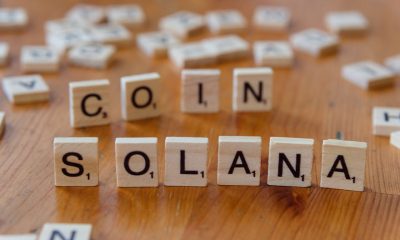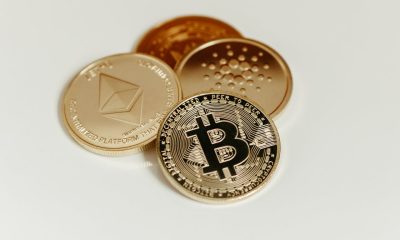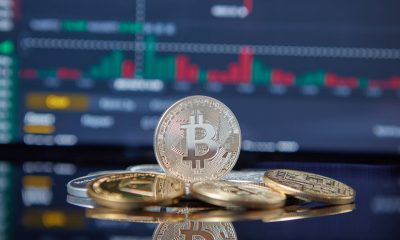Crypto
Robinhood Removes Cardano, Polygon, and Solana from the platform
In summary, Robinhood’s decision to remove support for Cardano, Polygon, and Solana is a result of their classification as unregistered securities by the SEC in recent court cases. The move reflects the company’s commitment to regulatory compliance and ongoing review of cryptocurrency offerings. Users have until June 27th, 2023, to withdraw or sell these assets.

Robinhood, a popular trading app, has announced that it will stop supporting three cryptocurrencies – Cardano (ADA), Polygon (MATIC), and Solana (SOL) – as of June 27th, 2023. This decision comes as a result of the Securities and Exchange Commission (SEC) listing these tokens as unregistered securities in its recent lawsuits against Coinbase and Binance.
In an official update, Robinhood stated that they regularly review the cryptocurrencies available on their platform, and based on their recent assessment, they have decided to discontinue support for ADA, MATIC, and SOL. Users are required to withdraw or sell these assets for fiat currency or other eligible assets on Robinhood before the stated deadline.
If you want to find out why Robinhood removed Solana, Cardano, and Polygon from its platform download for free the Born2Invest mobile app. Available for both Android and iOS devices, our companion app keeps its readers up to date with the most important business news of the day.
Once the deadline has passed, all remaining assets will be sold at market prices and the proceeds from these sales will be returned to users
According to CoinGecko, the prices of ADA, MATIC, and SOL have moved differently in the last 24 hours: ADA fell 2.7%, MATIC dropped 0.4%, and SOL rose 1.1%.
However, the move comes shortly after the SEC filed lawsuits against both Binance and Coinbase, accusing them of various violations, including securities law violations. The lawsuits allege that ADA, MATIC, and SOL are unregistered securities.
Dan Gallagher, Robinhood’s head of regulatory compliance, testified before the House Agriculture Committee and mentioned that the company is actively reviewing its cryptocurrency offerings. It appears that the decision to remove support for these three tokens is consistent with Robinhood’s commitment to compliance and regulatory standards.
In the past, Robinhood had added support for Solana and Polygon in April 2022, with Cardano’s listing following in September of that year
Despite the removal of ADA, MATIC, and SOL, Robinhood will continue to support a number of other cryptocurrencies from its original list of 18, which includes popular options like Bitcoin (BTC) and Ethereum (ETH), as well as meme coins like Dogecoin (DOGE) and Shiba Inu (SHIB). In addition, Layer 1 tokens such as Avalanche (AVAX) and Tezos (XTZ), as well as DeFi tokens such as Aave (AAVE), Compound (COMP), and Uniswap (UNI) will continue to be available for trading on the platform.
In summary, Robinhood’s decision to remove support for Cardano, Polygon, and Solana is a result of their classification as unregistered securities by the SEC in recent court cases. The move reflects the company’s commitment to regulatory compliance and ongoing review of cryptocurrency offerings. Users have until June 27th, 2023, to withdraw or sell these assets. After that, any remaining tokens will be sold at market prices and the proceeds returned to users.
__
(Featured image by sergeitokmakov via Pixabay)
DISCLAIMER: This article was written by a third party contributor and does not reflect the opinion of Born2Invest, its management, staff or its associates. Please review our disclaimer for more information.
This article may include forward-looking statements. These forward-looking statements generally are identified by the words “believe,” “project,” “estimate,” “become,” “plan,” “will,” and similar expressions. These forward-looking statements involve known and unknown risks as well as uncertainties, including those discussed in the following cautionary statements and elsewhere in this article and on this site. Although the Company may believe that its expectations are based on reasonable assumptions, the actual results that the Company may achieve may differ materially from any forward-looking statements, which reflect the opinions of the management of the Company only as of the date hereof. Additionally, please make sure to read these important disclosures.
First published in BLOCK-BUILDERS.DE, a third-party contributor translated and adapted the article from the original. In case of discrepancy, the original will prevail.
Although we made reasonable efforts to provide accurate translations, some parts may be incorrect. Born2Invest assumes no responsibility for errors, omissions or ambiguities in the translations provided on this website. Any person or entity relying on translated content does so at their own risk. Born2Invest is not responsible for losses caused by such reliance on the accuracy or reliability of translated information. If you wish to report an error or inaccuracy in the translation, we encourage you to contact us.

-

 Fintech4 days ago
Fintech4 days agoRobinhood Expands to Europe with Tokenized Stocks and Perpetual Futures
-

 Business2 weeks ago
Business2 weeks agoAmerica’s Debt Spiral: A $67 Trillion Reckoning Looms by 2035
-

 Crowdfunding1 week ago
Crowdfunding1 week agoTasty Life Raises €700,000 to Expand Pedol Brand and Launch Food-Tech Innovation
-

 Cannabis4 days ago
Cannabis4 days agoCannabis Clubs Approved in Hesse as Youth Interest in Cannabis Declines
























